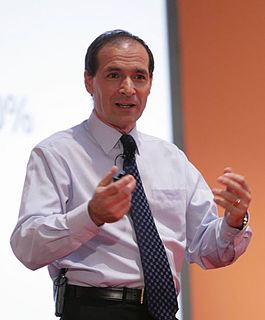A Quote by Patrick Dixon
Listen to your customers but don't (always) believe what they say-they know even less about the future than you.
Related Quotes
Living with integrity means...not settling for less than what you know you deserve in your relationships; asking for what you want and need from others; speaking your truth, even though it might create conflict or tension; behaving in ways that are in harmony with your personal values; making choices based on what you believe, and not what others believe.
Listen to the people who love you. Believe that they are worth living for even when you don't believe it. Seek out the memories depression takes away and project them into the future. Be brave; be strong; take your pills. Exercise because it's good for you even if every step weighs a thousand pounds. Eat when food itself disgusts you. Reason with yourself when you have lost your reason.
The future's so random, and so mobile, there's no way you're going to get to your vision of what you want your community to be just by chance alone. I really believe you have to let people know, to use your voice, to say, 'this is what I like about my place, I want to keep it this way, this is what I think can be improved, this is what I disapprove of.' That's the only way you can have a part in shaping the future.
Find out who you are and figure out what you believe in. Even if it's different from what your neighbors believe in and different from what your parents believe in. Stay true to yourself. Have your own opinion. Don't worry about what people say about you or think about you. Let the naysayers nay. They will eventually grow tired of naying.
... when you make it a moral necessity for the young to dabble in all the subjects that the books on the top shelf are written about, you kill two very large birds with one stone: you satisfy precious curiosities, and you make them believe that they know as much about life as people who really know something. If college boys are solemnly advised to listen to lectures on prostitution, they will listen; and who is to blame if some time, in a less moral moment, they profit by their information?
Often people say they can't base their strategies on customers because customers make unreasonable requests and because customers vary too much. Such opinions reveal serious misconceptions. The truly outside-in company definitely does not try to serve all the needs of its customers. Instead, its managers are clear about what their organization can and should do for customers, and whatever they do they do well. They focus.



































